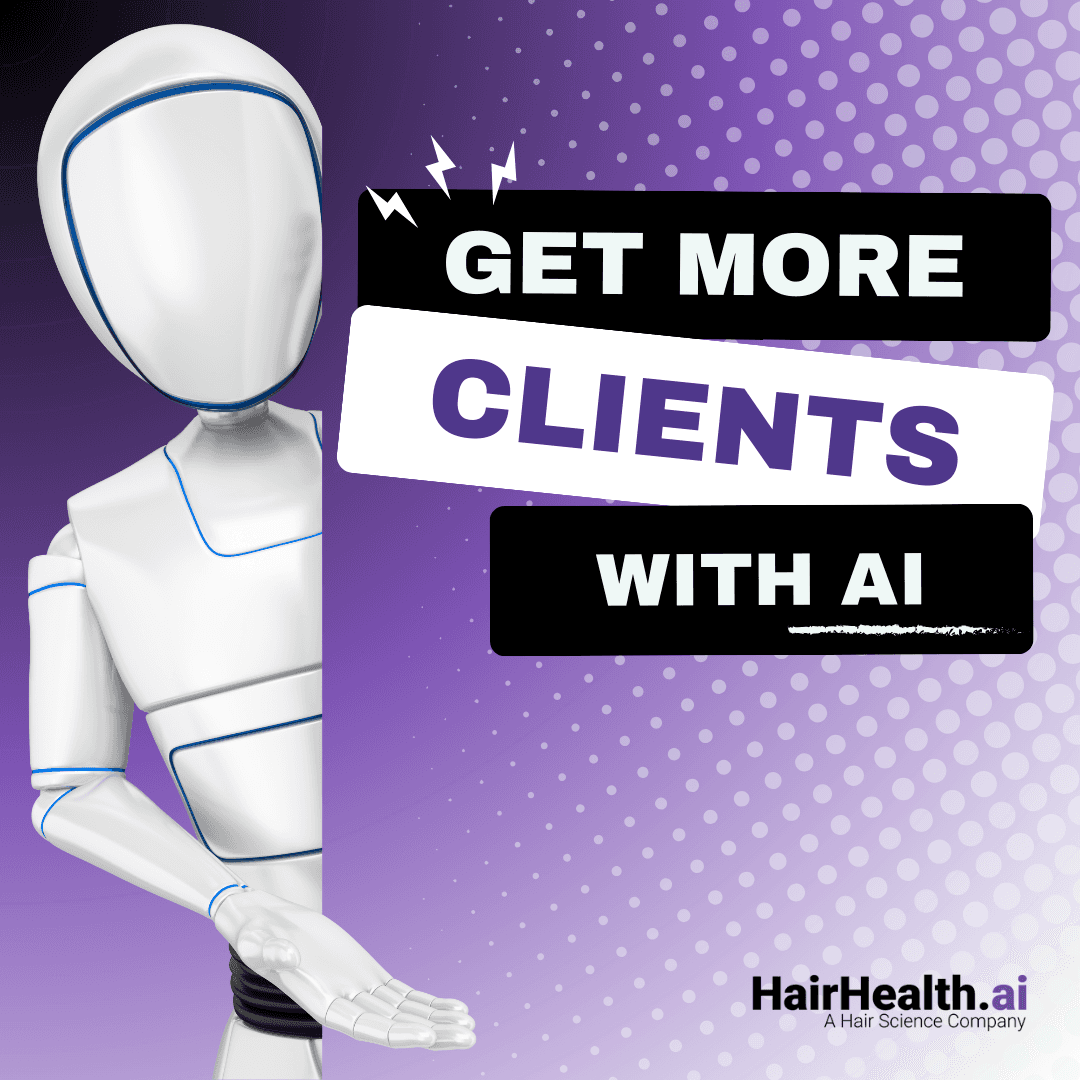How AI is Revolutionising the Hair Restoration Industry and Why Clinics Should Embrace It
Nov 4, 2024
AI for hair clinics isn’t just about diagnostics ...

The hair restoration industry is at the cusp of a major transformation, thanks to advancements in artificial intelligence (AI). From diagnosis to treatment planning, AI is enabling hair clinics to provide more accurate, personalised, and effective solutions for patients dealing with hair loss. With technologies like hair transplant simulators and AI-driven diagnostic tools, clinics have the potential to improve their services, streamline operations, and offer unparalleled experiences to their clients. Let’s explore how AI in hair care is reshaping the industry and why all hair clinics should embrace this wave of innovation.
AI-Driven Diagnosis and Predictive Analysis
One of the most significant challenges in hair restoration is diagnosing the underlying cause of hair loss and predicting its progression. Traditional diagnostic methods can be time-consuming, expensive, and often subjective. However, AI in hair loss treatment is changing this paradigm. Using vast datasets of scalp images, patient profiles, and hair loss patterns, AI-powered diagnostic tools can quickly analyse and provide insights into hair health.
With AI, hair clinics can offer faster, more accurate diagnoses, identifying conditions like androgenetic alopecia, alopecia areata, and other forms of hair loss with precision. AI algorithms also predict the progression of hair loss, allowing clinics to personalise treatment plans based on each patient’s unique condition. This helps clinics make more informed decisions, improve patient satisfaction, and reduce the risk of ineffective treatments.
Personalised Treatment Plans and Enhanced Outcomes
AI for hair transplant clinics isn’t just about diagnostics; it’s about delivering personalised care. By analysing individual patient data, including hair density, scalp condition, and genetic predisposition, AI can recommend treatments that are tailored to each patient’s specific needs. For instance, certain patients may respond better to non-surgical interventions like PRP therapy or laser treatments, while others may benefit from hair transplantation.
AI-driven treatment plans not only enhance patient outcomes but also build trust and confidence. Patients can see that their treatment is backed by data and customised specifically for them, which makes them more likely to follow through with the prescribed plan and see positive results.
The Power of the Hair Transplant Simulator

Imagine a potential client visiting your clinic and seeing exactly how they would look post-transplant. A hair transplant simulator is a revolutionary tool that allows patients to visualise the results of a hair restoration procedure before it even begins. This AI-powered technology uses facial recognition, 3D modeling, and predictive analytics to simulate the results of a hair transplant, showing patients what they might look like with restored hair density and hairline.
This technology is a game-changer for patient consultations. By giving clients a realistic preview of the outcome, hair clinics can set accurate expectations and reduce uncertainties. Patients are more likely to proceed with a procedure when they have a clear vision of the potential results, making the simulator a powerful tool for both client satisfaction and clinic conversions.
AI-Enhanced Marketing and Customer Engagement
Beyond diagnostics and treatment, AI in hair care is revolutionising how clinics attract and engage with clients. AI-powered marketing tools can analyse audience behaviour, helping clinics target potential clients who are actively searching for hair restoration solutions. With personalised ads, AI-driven chatbots, and content recommendations, clinics can reach the right audience with the right message at the right time.
For instance, AI chatbots can provide instant responses to client inquiries, answering frequently asked questions and scheduling consultations. They operate 24/7, ensuring that potential clients receive assistance whenever they need it. This level of engagement not only boosts clinic conversions but also builds a strong brand presence in an increasingly competitive market.
Improving Clinic Operations with Automation
AI isn’t just beneficial for patient care; it can also streamline day-to-day operations within a hair clinic. AI-powered scheduling tools, for example, can optimise appointment booking, ensuring that clinicians’ time is used efficiently and that patients don’t experience long wait times. Data analytics tools can track key metrics, such as the success rates of various treatments and patient satisfaction, providing valuable insights that help clinics make informed business decisions.
Additionally, AI technologies for hair clinics can manage inventory, forecast demand for certain products, and track trends in patient preferences. Automating these administrative tasks reduces the workload for clinic staff, allowing them to focus more on patient care and satisfaction.
Why All Clinics Should Embrace AI in Hair Restoration

The benefits of integrating AI into hair clinics are undeniable. Here’s why clinics should adopt these technologies now:
Increased Accuracy and Reduced Human Error: AI-powered diagnostics and treatment planning reduce the risk of errors, ensuring that patients receive the best possible care.
Enhanced Patient Satisfaction: With personalised treatment plans and tools like hair transplant simulators, patients gain a higher level of trust in their clinic and its offerings.
Streamlined Operations: From appointment scheduling to inventory management, AI can optimise operations, making clinics more efficient and profitable.
Competitive Edge: In a competitive industry, adopting AI can set a clinic apart as a forward-thinking, technology-driven leader in hair restoration.
The Future of Hair Restoration with AI
As AI continues to evolve, its role in hair restoration will only grow. We can expect even more advanced diagnostic tools, real-time treatment monitoring, and predictive analytics that help clinics stay ahead of patient needs. The clinics that embrace AI today will not only improve their current operations but also position themselves as pioneers in an industry primed for transformation.
In conclusion, AI in hair loss treatment, hair care, and hair restoration is more than just a trend; it’s a revolution. By adopting AI-driven technologies, hair clinics can deliver better results, improve patient satisfaction, and drive business growth. Now is the time for clinics to embrace AI and become leaders in the future of hair restoration.